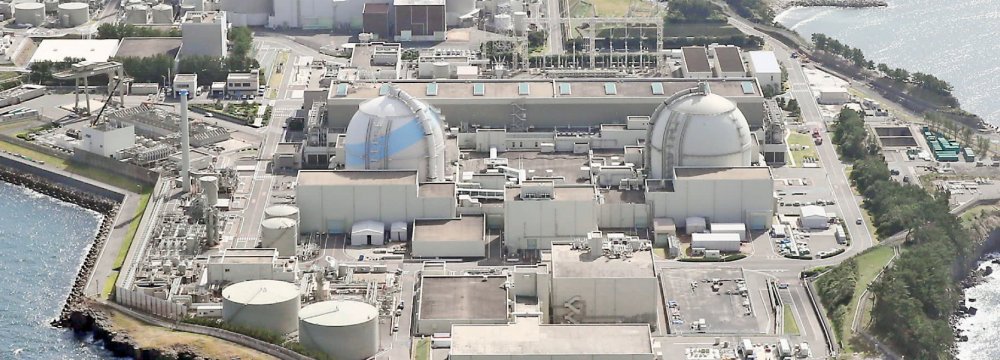Japan Nuclear Recycling Policy at Standstill

Energy, World Economy December 19, 2018 17:01 0 Japan Nuclear Recycling Policy at Standstill . . . . . Supplies of uranium, used to fire nuclear power plants, are becoming increasingly plentiful globally, threatening to make redundant Japan's long-standing policy of recycling spent nuclear fuel.A pillar of the policy is a joint project with France
Energy, World Economy December 19, 2018 17:01 0 Japan Nuclear Recycling Policy at Standstill  . . . . .
. . . . .
Supplies of uranium, used to fire nuclear power plants, are becoming increasingly plentiful globally, threatening to make redundant Japan's long-standing policy of recycling spent nuclear fuel.
A pillar of the policy is a joint project with France to develop a fast reactor, which generates electricity using spent nuclear fuel. But The French government recently informed Tokyo of plans to freeze the project amid rising uranium reserves, Nikkei reported.
The surprise move has brought Japan's nuclear fuel cycle policy to a standstill.
Japan remains publicly committed to the program. "The development of a fast reactor will contribute to the effective utilization of resources and energy self-sufficiency," said an official in charge of the project at the ministry of economy, trade and tindustry at a government meeting.
But despite the remarks, the road map for developing a fast reactor announced by the ministry the same day does not give specifics on how the program will proceed.
That is because the French government had earlier informed Japan behind the scenes that was ending its participation in the project and would cease funding it in 2020, although it is likely to continue research on a fast reactor on a smaller scale.
Construction of nuclear power plants took off around the world in the 1960s, raising concerns that uranium reserves would be exhausted in the 21st century. Western countries and the former Soviet Union saw fast reactors as crucial to the efficient reuse of fuel and competed to develop them.
Japan also made building a fast reactor central to its nuclear fuel cycle policy in the 1950s, when it began moves to introduce nuclear power.
Its flagship was Monju, a prototype fast-breeder reactor in western Japan. Breeder reactors produce more nuclear fuel than they consume.
But Monju was hit by a spate of difficulties and the government decided in 2016 to decommission the reactor with little to show for its decades of effort and billions of dollars spent.
. . . . https://financialtribune.com/node/95687Click to copy the urlCopied . Republishing Guidelinessorce
برچسب ها :
ناموجود- نظرات ارسال شده توسط شما، پس از تایید توسط مدیران سایت منتشر خواهد شد.
- نظراتی که حاوی تهمت یا افترا باشد منتشر نخواهد شد.
- نظراتی که به غیر از زبان فارسی یا غیر مرتبط با خبر باشد منتشر نخواهد شد.
شما باید وارد شوید تا نظر بنویسید.

ارسال نظر شما
مجموع نظرات : 0 در انتظار بررسی : 0 انتشار یافته : 0